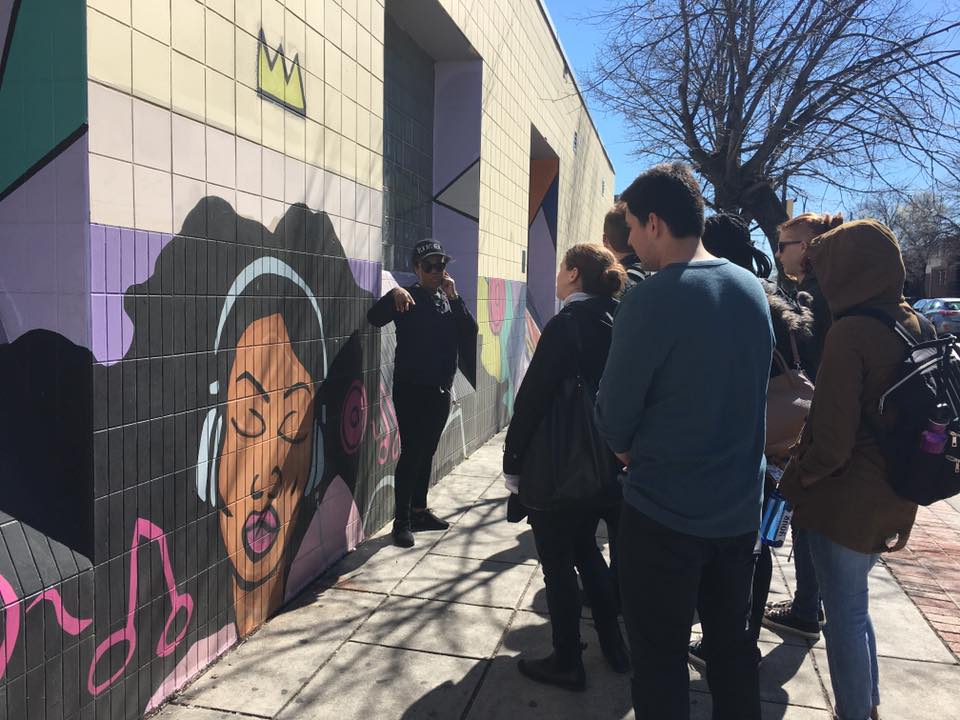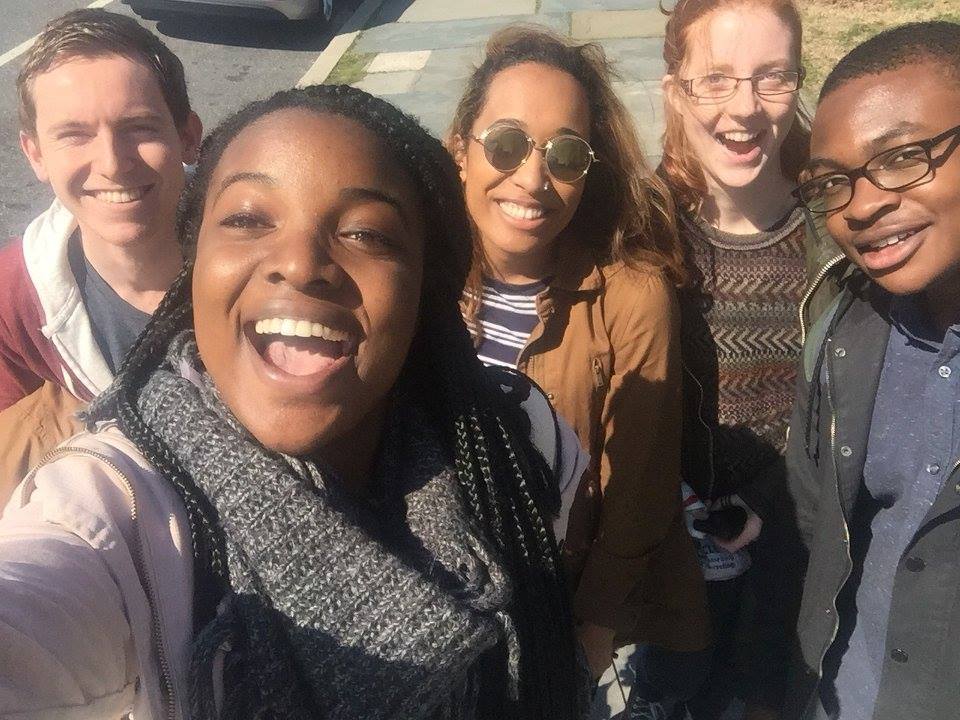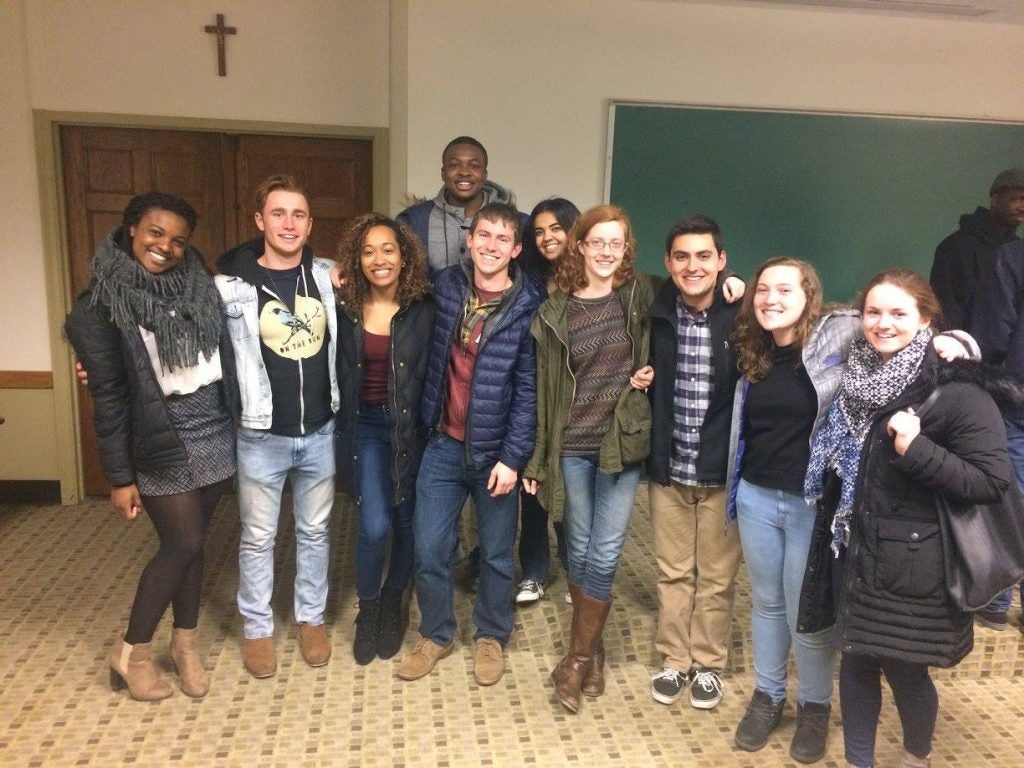Racial and Economic Justice in Baltimore
In this interview with senior, Courtney Maduike, she reflects on her MAGIS Immersion trip to Baltimore. Another in a series of reflections about Alternative Break Programs (ABP) sponsored by the Center for Social Justice and Campus Ministry.
Tell us about your MAGIS Immersion trip
I spent my final spring break as an undergraduate in Baltimore, MD. The premise of the trip was to explore systems of racial and economic injustice in the city of Baltimore. We met with community partners tackling issues related to social justice ranging from food insecurity to education, to fair housing.
What did your experience teach you about yourself?
The ABP program places a lot of emphasis on reflection, particularly on their immersion trips. At the end of each day, we engaged in an Examen and reflected on the parts of our day that brought us great joy, as well as great discomfort. I was lucky enough to be on a trip where half of the group were seniors, which is apparently unusual for ABP trips.
As seniors coming to the end of our time on the Hilltop, we reflected on how the past four years have shaped us. In thinking of the future, and what post-graduation opportunities await us, the question of how to engage in community service and social justice work within the limits of one’s future profession. We also talked about the decision graduating seniors feel they are forced to make. Should we enter corporate America or work at a small, community-based non-profit?
As a child of immigrants, I am especially aware of how my graduating from an elite university and having a coveted corporate job, among other accolades, is a culmination of my parent’s American dream. Throughout the trip, I thought a lot about how my immigrant identity impacts the way I think and talk about post-graduation and how it intersects with my racial and socioeconomic identity. The frequent silences and opportunities for reflection forced me to confront the aspects of my identity that I love, as well as the uglier parts of my identity I try to shield from the world.
Did you meet someone or, a group of people through the program that left an impression on you? Describe how meeting them affected you and why.
One of my favorite community partners we visited was the Baltimore Algebra Project. The Algebra Project is a national network of non-profit organizations that serve as after-school programs. They offer tutoring programs along with a number of other education programs aimed at increasing access to quality education for young people. When we met the young people during our visit, I was taken aback by their bold leadership and substantive discussions. But, I soon realized, this is also something the Baltimore Algebra Project does; it equips students with the tools, language, and knowledge to advocate for their civil rights. The organization is an academic supplement for students, as well as an organizing body that teaches students the politics of advocacy, protest, and mobilization.
 Did the experience of participating in this program affect your plans for the future?
Did the experience of participating in this program affect your plans for the future?
During my senior year, I’ve reflected a lot about how Georgetown has challenged and help me develop my sense of self. I came to understand my black identity in new ways, as well as my Christian identity while here. The trip to Baltimore allowed me to be vulnerable and become more comfortable with embracing these changes. While I recognize my journey to self-discovery is just getting started, it is through opportunities like my spring break trip that I am able to continue onto the next leg of the trip.
Written by Courtney Maduike, F’17.

